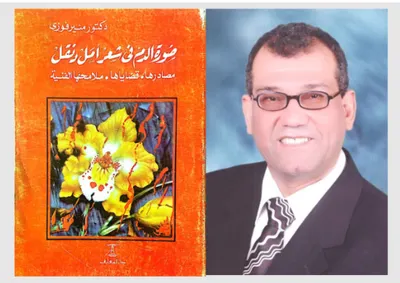The Poetry That Does Not Bleed An Exploration of the Book The Image of Blood in the Poetry of Amal Dunqul by Munir Fawzy

Yemenat
Mohammed Al-Mekhlafi
O Last of the Tolls
Tell us, who has perished
So we may drink his blood
And end our revelries
Feasting upon his flesh!
I begin my article with these poignant lines from the poet Amal Dunqul, which express profound suffering, as I delve into the book The Image of Blood in the Poetry of Amal Dunqul by the Egyptian writer and professor Dr. Munir Fawzy.
Published by Dar Al-Ma’arif in Cairo in 1995, the book spans three hundred and thirty-six pages in a large format. This reading coincides with the eighty-fifth anniversary of the birth of the Egyptian poet Amal Dunqul, who was born on June 23, 1940—a fitting occasion to rediscover his timeless poetic legacy.
The opening verses encapsulate a harsh tableau that reveals the suffering of humanity under the yoke of tyrannical authority. Here, Dunqul transforms hunger from a physical need into a symbol of collective loss. The act of drinking blood and feasting on flesh are not merely shocking images; they express the violation of body and soul in societies uprooted by injustice. Within this context, blood becomes a silent language that narrates tales of inherited pain.
The depiction of reality in most Arab countries today mirrors this bleak poetic vision. Political and economic crises ravage the Arab body, exacerbated by the escalating poverty, deprivation, and hunger, as seen amidst the bloody events in Gaza, where occupation perpetrates horrifying acts of genocide, revealing the indifference of Arab rulers towards supporting Palestine and its people as part of this tragedy.
This book stands out as one of the significant critical studies that examine The Image of Blood in the Poetry of Amal Dunqul. It deeply explores its sources, issues, and artistic features across three main sections, dividing its inquiry into two primary axes: the
ارسال الخبر الى: